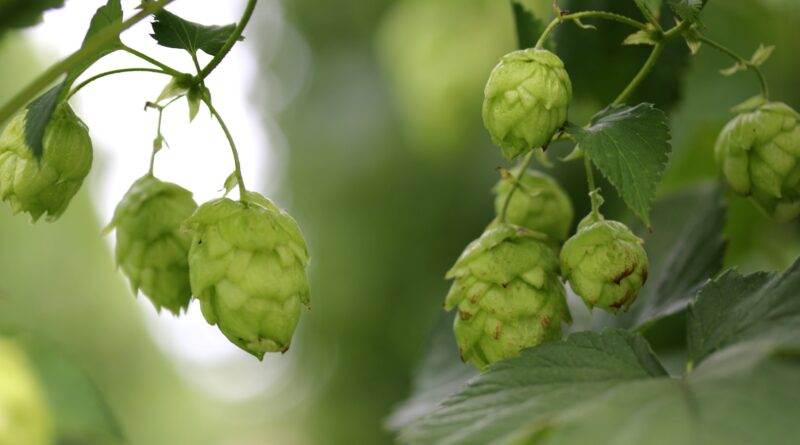Hop Growers of Michigan Awarded USDA Marketing Grant to Enhance Sales Competitiveness within the Great Lakes Region
Hop Growers of Michigan (HGM), the non-profit organization representing the hop industry in the Great Lakes State, has recently been awarded a $105,549 U.S. Department of Agriculture’s (USDA) Specialty Crop Block Grant. This funding will allow HGM to launch a 2-year marketing, sales and product awareness campaign within the Midwest—specifically targeting Michigan, Indiana, Ohio and Wisconsin. The project will be managed by Dianna Stampfler of Promote Michigan, who has represented the Michigan Brewers Guild (MBG) since 2008.
HGM will expand its membership relationship with the MBG—which represents over 300 breweries throughout the state, while also establishing networks with the Brewers Guild of Indiana, Ohio Craft Brewers Association and Wisconsin Brewers Guild by joining these organizations and attending their respective annual trade shows and conferences to share the story of Michigan grown hops. The grant will also allow HGM to connect with both consumers of hops (the craft brewers) and the consumer of locally brewed beer, by highlighting the connection between the finished product and its ingredients, making it easier for both groups to identify beer brewed with local, Michigan grown hops.
“This grant provides all Michigan hop growers with an opportunity to establish new business relationships with customers in the Great Lakes region,” notes Mark Trowbridge, HGM President. “It’s often expensive for growers to attend brewer conferences, and those events are the best bang for the buck in getting your message out. This grant will allow growers to be at those events with a contingency representing Michigan hops.”
While craft beer continues to have a decent following, the small hop grower is challenged to sell their crops in an increasingly competitive market. The supply of hops from the Pacific Northwest—Washington, Oregon and Idaho—have nearly doubled in the last 10 years while the demand in the U.S. for craft beer has cooled off due to new alternative products. Michigan is currently ranked fourth in the nation as a hop growing state and is the largest outside of the Pacific Northwest, with nearly 400 acres in hop production.
“As a MSU Extension Educator I’ve been working with Michigan hop producers for over 15 years,” notes J Robert Sirrine, Ph.D., Senior Educator at Michigan State University Extension. “In that time the quality of Michigan hops has improved dramatically. Michigan has become a legitimate hop growing region with novel aroma profiles. USDA Specialty Crop Block grant dollars to help promote and market Michigan hops is a huge benefit to the industry. Once brewers learn about the quality of Michigan hops and make beer with Michigan hops, I have no doubt they will come back for more!”
The Michigan Department of Agriculture and Rural Development (MDARD) will oversee 20 total grants worth over $2.25 million aimed to enhance the competitiveness of specialty crop products and create new market opportunities for the state’s specialty crop producers—like hop growers.
The funding for the SCBGP grants is authorized by the 2018 Farm Bill and FY2023 funding is awarded for a three-year period beginning Sept. 30, 2023. Since 2006, USDA has invested over $1 billion through the SCBGP to fund nearly 12,000 projects that have increased the long-term successes of producers and enhanced marketing opportunities for U.S. specialty crops products.
More information about these awards is available on this webpage: 2023 SCBGP Awarded Grants (pdf).
Hop Growers of Michigan was formed in 2015 with goals to conduct educational programming and instruction on commercial hop growing and processing in Michigan; facilitate best practice exchanges, sharing of techniques and knowledge; enlist the support of Michigan higher education institutions for research and development of hop horticulture and processing; promote and market the utilization of Michigan hops; and partner with other organizations to advance the interest of Michigan hop growers and craft brewing.

